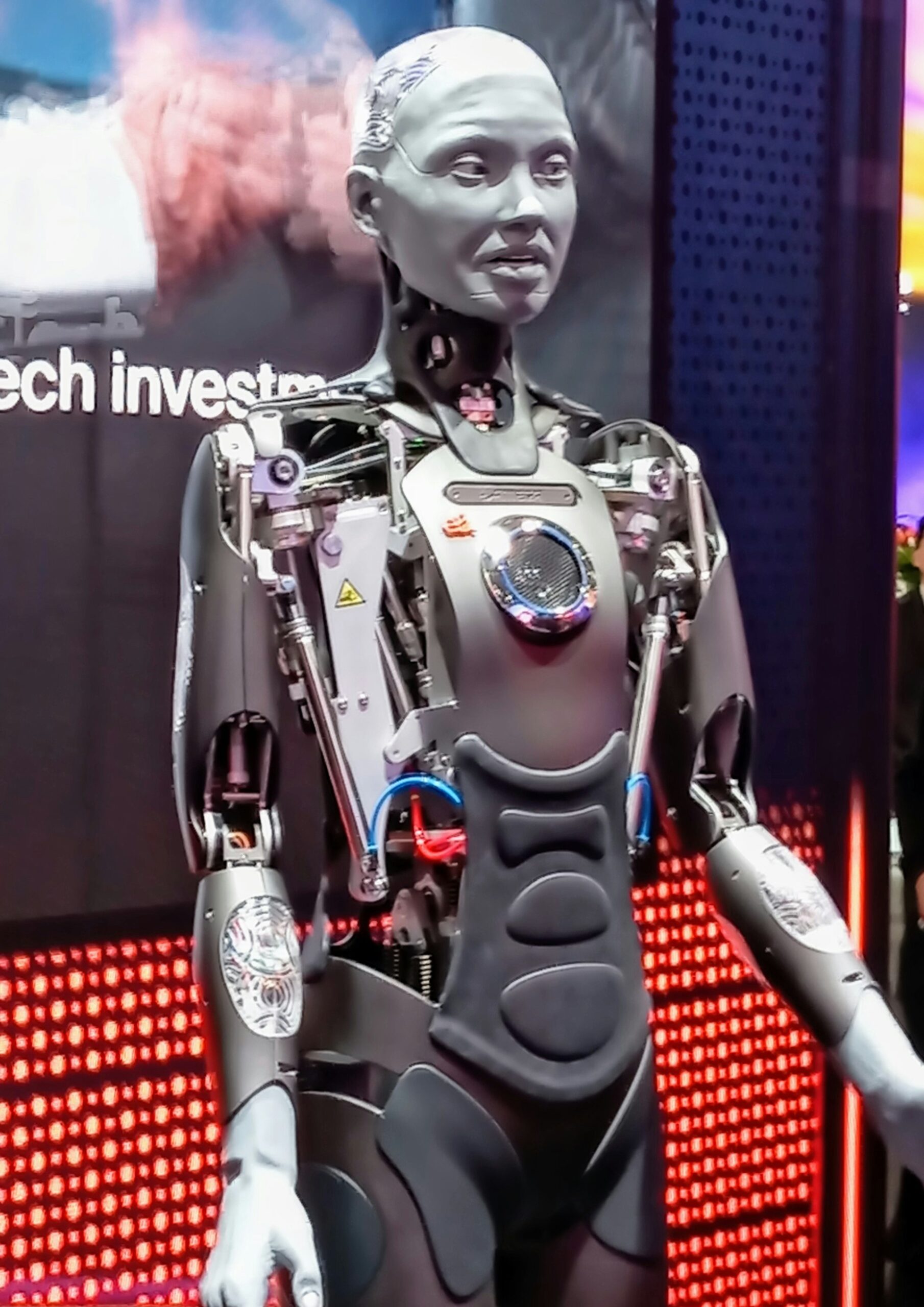Unlocking the Future: AI-Powered Recommendation Engines for Next-Level Personalization

Photo by BoliviaInteligente on Unsplash
Introduction: The Evolution of Recommendation Engines
Recommendation engines have become pivotal in shaping digital experiences, offering users personalized product, content, and service suggestions. In 2025 and beyond, AI-powered recommendation engines stand at the forefront of this transformation, driven by advances in machine learning, deep learning, and natural language processing. The market for AI-based recommendation systems is projected to grow from $2.44 billion in 2025 to $3.62 billion by 2029, highlighting their increasing relevance across industries [2] . As businesses and consumers demand more tailored interactions, understanding the future trajectory of these engines is vital for sustainable growth.
Emerging Trends Shaping AI Recommendation Engines
Modern recommendation engines are rapidly evolving, incorporating generative AI , context-aware systems , and even augmented reality (AR) and virtual reality (VR) integration [1] . Generative AI, for example, enables engines to predict user preferences more accurately by creating new recommendations based on existing user data, helping overcome the limitations of traditional systems that relied solely on available inventory.
Context-aware recommendations adapt suggestions to real-time factors such as location, time, and user intent. Retailers can leverage this by offering seasonal products or location-specific deals, thereby enhancing relevance and engagement. Meanwhile, AR/VR integration allows for immersive shopping experiences, where users can explore products in virtual environments, further personalizing their journey.
Deep Learning and Natural Language Processing
Advancements in deep learning and natural language processing (NLP) have significantly enhanced the capability of recommendation engines. NLP enables systems to interpret complex text-based data, including product descriptions, user reviews, and search queries, delivering more nuanced and accurate suggestions [2] . For instance, NLP can recognize that a search for “lightweight laptops” also implies interest in “portable laptops” or “ultrabooks.”
Deep learning algorithms analyze user behavior, feedback, and purchase history, constantly refining recommendation accuracy. These systems can even incorporate emotion-driven recommendations , adjusting suggestions based on detected user emotions, such as stress or excitement, to foster deeper engagement and loyalty.
Business Impact and Case Studies
Businesses deploying AI-powered recommendation engines benefit from increased engagement, higher conversion rates, and improved customer satisfaction. According to Epsilon, 85% of consumers are more likely to buy from companies that offer personalized experiences [3] . Amazon and Netflix stand out as industry leaders, reporting significant sales and engagement increases-Netflix attributes a 75% increase in user engagement to its recommendation engine, while McKinsey found that personalized recommendations can drive a 10-15% increase in sales and a 20-30% increase in customer satisfaction .
For businesses seeking to implement these engines, the process typically involves:
- Identifying key user data points (purchase history, browsing behavior, demographics)
- Selecting or developing AI models tailored to your industry and goals
- Testing and refining recommendations based on real user feedback
- Ensuring data privacy and compliance with relevant regulations
Companies may consult with AI technology providers or data science specialists to customize solutions for their unique needs. For actionable steps, you can begin by searching for “AI recommendation engine providers” or contacting established analytics firms with experience in deploying these technologies.
Ethical AI and Responsible Deployment
As AI recommendation engines handle increasing amounts of user data, ethical practices and transparency are essential. Regulatory bodies such as UNESCO have set global standards for AI ethics, urging organizations to deploy fair, transparent, and accountable systems [5] . In 2025, businesses must prioritize models that minimize bias, respect privacy, and provide clear explanations for recommendations. This builds trust with users and fosters long-term loyalty.
To ensure responsible deployment, businesses should:
- Implement robust data governance frameworks
- Regularly audit algorithms for fairness and bias
- Clearly communicate how recommendations are generated
- Offer users control over their data and personalization settings
For guidance on ethical AI, refer to official resources from organizations such as UNESCO or consult with legal and compliance experts specializing in AI governance.

Photo by Makayla Rainville on Unsplash
New Use Cases and Industry Applications
AI-powered recommendation engines are expanding beyond retail and entertainment into areas such as customer service , cybersecurity , digital assistants , and customer relationship management (CRM) [5] . For example, AI-driven customer support platforms can automatically suggest relevant help articles or escalate cases based on user intent, improving resolution times and satisfaction.
In cybersecurity, recommendation engines can analyze user behavior to suggest best practices for data protection or flag unusual activity. In CRM, these systems help identify cross-sell or upsell opportunities tailored to individual client needs. To explore these applications, businesses can search for “AI-powered CRM solutions” or “AI customer service platforms” and evaluate offerings from established software vendors.
Implementation Challenges and Solutions
While the benefits are substantial, implementing AI-powered recommendation engines poses challenges, such as data quality, integration complexity, and user trust. To overcome these obstacles, organizations should:
- Invest in high-quality, diverse data sources
- Choose scalable, interoperable AI platforms
- Engage users with transparent personalization options
- Monitor performance and adjust models as needed
Businesses may face resistance due to privacy concerns or skepticism about automated suggestions. Address these by offering clear opt-in choices, educating users about data usage, and providing manual override options for recommendations.
Step-by-Step Guidance for Adopting AI Recommendation Engines
If you’re considering implementing AI-powered recommendation technology, follow these steps:
- Assess your business goals and customer needs to determine desired outcomes.
- Research established AI technology providers and solutions, focusing on proven industry experience and client success stories.
- Consult data scientists or AI specialists to evaluate technical requirements and integration strategies.
- Pilot the system with a select user group, collect feedback, and refine the model to optimize accuracy.
- Continuously monitor for ethical compliance, data privacy, and user satisfaction, adjusting your approach as regulations and technologies evolve.
For further assistance, consider searching for “AI recommendation engine implementation consulting” or “ethical AI deployment resources.” If you require guidance on data privacy, visit official regulatory agency websites such as the Federal Trade Commission (FTC) and search for “AI data privacy standards.”
Key Takeaways and Future Outlook
The future of AI-powered recommendation engines promises unprecedented personalization, efficiency, and ethical standards. By harnessing emerging technologies and prioritizing responsible deployment, businesses can unlock new opportunities for engagement, sales, and customer loyalty. Stay informed of the latest trends, consult with trusted experts, and proactively address challenges to maximize the potential of recommendation engines in your organization.
References
- [1] Lumenalta (2025). What is a recommendation engine? Updated 2025: Emerging trends and future outlook.
- [2] Shaped AI (2025). AI-Powered Recommendation Engines: A Complete Guide.
- [3] SuperAGI (2025). Top 10 AI Recommendation Engines for Product Discovery in 2025.
- [4] Salesmate (2025). Top AI Trends to Watch in 2025.
- [5] Writesonic (2025). The Future of AI: 6 AI Trends to Watch Out for in 2025.
MORE FROM findsun.net













